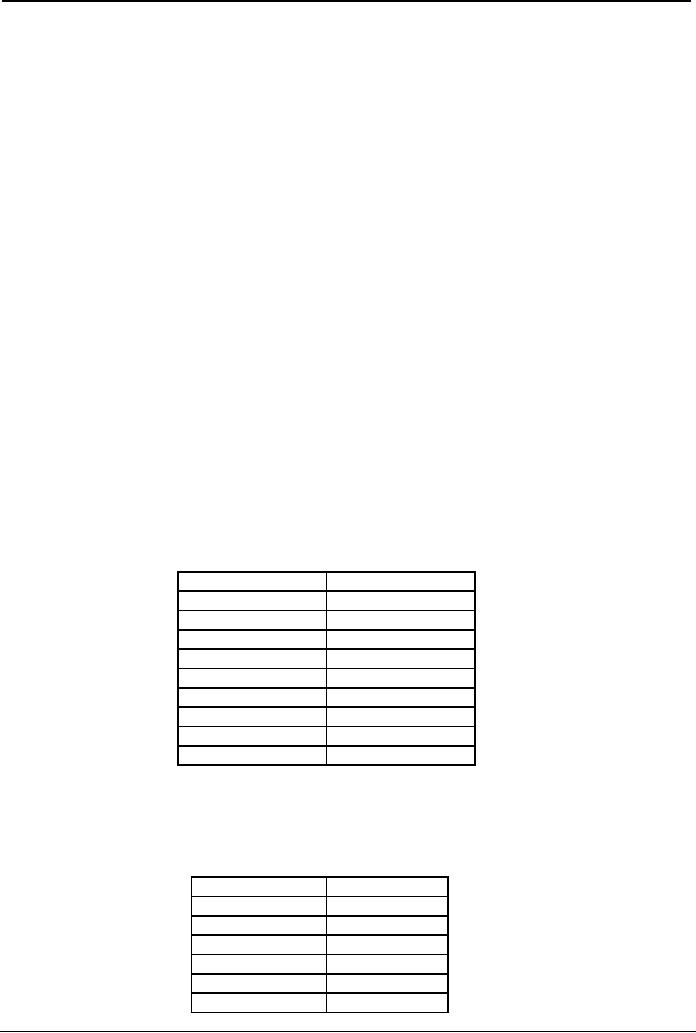 |
FUNDAMENTALS OF WRITING NEWS FOR RADIO I:Language |
| << FUNDAMENTALS OF NEWS WRITING:Inverted Pyramided Style, Telling the Story |
| FUNDAMENTALS OF WRITING NEWS FOR RADIO II:Complex numbers >> |

Radio
News, Reporting and Production
MCM515
VU
LESSON
28
FUNDAMENTALS
OF WRITING NEWS FOR RADIO
I
Writing
news for radio is a
different task; different
from the way employed for
writing news for
newspaper
or
television. While writing for radio
following fundamentals must be
kept in mind.
1.
News for Once
only
Since
newspaper can be read for
many times a day and it is
something that can be picked up
for confirming
or
re-reading news stories
whenever one feels like.
But this is not the case
with radio news. Radio
news
bulletin
goes on air once only. That
is why the radio news must
be written in such a way
that the listener
may
be able to understand and
grasp the contents of the news when
he/she listens to it.
2.
Language
It
has been mentioned time and
again that the radio is a
medium that is meant for
ears and not for
eyes.
Radio
is a verbal communication medium and the
language to be used for
knitting radio content must
be
spoken,
easy and colloquial.
3.
Avoid Written
Expression
Though
what is put on air on radio is first, in
most of cases, written on
paper and then put on air by
the
newscaster,
but the way the message is
written must not be in
written expression. The
example given below
will
explain the difference between written
and spoken
expressions.
Written
Expression
``The
government,'' said the opposition leader,
``had created the problems.''
The
same sentence when read out
may take the following shape
conveying altogether opposite sense.
The
government said, "The opposition
leader had created
problems."
Expression
for Radio
The
opposition leader said that
the government had created the
problems.
4.
Avoid Literary
Expression
Literary
expression has its own
tone and style and is
different from journalistic language so
must not be
used
for print or electronic
media.
Literary
Expression
Sweet
are the fruits of adversity.
Expression
for Radio
The
fruits of adversity are
sweet.
Literary
Expression
Kuchh
huvaa yoon k donon kaideen
ki mulakat Karachi mein hui.
Expression
for Radio
Dono
kaideen ki mulakat Karachi mein
hui.
5.
Avoid Inverted
Sentences
Because
of heavy rainfall, which
came yesterday, the
city life was
jammed.
Radio
Expression
Yesterday
it rained heavily and it jammed the
city life.
77

Radio
News, Reporting and Production
MCM515
VU
6.
Avoid Parenthesis
A
man, basically
a taxi driver, overran a
pedestrian.
Radio
Expression
A
taxi driver overran a
pedestrian.
7.
Avoid Jargons
Jargons,
as has been explained, are
specific terms and terminologies which
only the experts or the
related
people
of a field can understand.
Since radio addresses an
ordinary person as well so
chances are there
that
an
ordinary person may not
get the meaning of the word.
These kinds of terms must be
communicated
through
there colloquial
equivalents.
For
instance;
Spinal
chord=back bone
Inflation=price
hike
Jargons,
if necessary, then must be
simplified.
For
instance;
Hydrophobia
= extreme fear of
water
Kleptomania
= a mental illness in which
somebody has a strong desire
to steal things.
Schizophrenia=
a mental illness in which a
person becomes unable to
link thought, emotion and
behavior
that
leads to withdrawal from reality and
personal relationships.
8.
Use familiar
words
Heavy
vocabulary is not encouraged even in
written or literary styles. A
good news writer, especially
when
writing
for radio, must avoid using
difficult words and replace
them with easy ones.
Some
example difficult words with
their respective substitutes
are as under:
Difficult
words
Substitutes
Remonstrate
Argue
To
be in Jeopardy
To
be in danger
Obliterate
Destroy
Plausible
Understandable
Antagonistic
Against
Loquacious
Talkative
Veracious
Truthful
Abrogate
Cancel
Penury
Poverty
9.
Use of Contractions
Since
while reading out news
bulletin, the news caster
gives an impression as if he/she is
talking to the
listeners,
and in conversational style, the
contractions of the following expressions
are used unless stress
is
needed
to be given, the news must be written by
using the contractions.
Is
not
Isn't
Are
not
Aren't
Was
not
Wasn't
Were
not
Weren't
Will
not
Won't
Would
not
Wouldn't
Should
not
Shouldn't
78

Radio
News, Reporting and Production
MCM515
VU
May
not
Mayn't
Might
not
Mightn't
Can
not
Can't
Could
not
Couldn't
Has
not
Hasn't
Have
not
Haven't
Had
not
Hadn't
10.
Abbreviations
�
Avoid
abbreviations especially names of the
states, countries, religious titles,
months, military
designations,
holy books etc. For
instance, LHR (Lahore), PUN
(Punjab), C-in-C (Commander
in
Chief)
�
If
necessary write with
hyphens. F-B-I , Y-M-C-A,
U-N, C-N-N, B-B-C
�
Don't
use symbols. For example "#"
for number, "&" for and, "@"
for at, etc.
11.
Capitalization
Capitalize
generously especially all
proper nouns, anything that
is important.
12.
Avoid Quotations
The
exact statements of newsmakers
can go in newspaper but should be avoided
in radio news bulletin.
The
reason
behind is, since the news
written for radio is to be
read out by a newscaster, he
can not readout
commas
or columns. Commas and
columns are used in written
expressions and a reader after
looking at a
sentence
within commas instantly comes to
know that what is given between the
commas is an exact
statement
of the person, the news is about. As far
as radio is concerned, a news
caster can not read
out a
sentence
in this way.
Written
sentence
President
said, "New dams are
inevitable for the prosperity of
Pakistan".
When
spoken, becomes
President
said commas begin new dams
are inevitable for the prosperity of
Pakistan commas
close.
Prefer
indirect speech
The
above sentence, when written
in indirect speech, will be
like this:
The
president said that the
new dams are inevitable
for the prosperity of
Pakistan.
13.
Avoid Punctuations
In
written expressions comma
denotes a pause and full
stop denotes the end of the
sentence, where as
when
you are writing for
radio you must avoid
supplying the sentence with commas
and full stops.
In
radio scripts, where there a
comma is needed, a slash (/)
is supplied and where there a
full stop is needed
two
slashes (//) are
inserted.
(/)
one slash denotes a
pause.
(//)
two slashes denote full
stop.
79
Table of Contents:
- WHAT RADIO IS:HISTORY OF RADIO, MARCONI –THE INVENTOR
- HISTORY OF RADIO:B.B.C. – 1922, Radio in Sub-Continent, PBC SERVICES
- OBJECTIVES OF BROADCASTING IN PAKISTAN:Information, Islamic ideology
- NEWS VALUES I:CONFLICT, PROGRESS, VICTORY AND DEFEAT
- NEWS VALUES II:TIMELINESS, PROXIMITY, NOVELTY, HUMAN INTEREST
- NEWS VALUES AND ELEMENTS OF NEWS:MISCELLANEOUS NEWS VALUES
- MEASURING THE IMPORTANCE OF NEWS:Intensity of an Event, NEWS STORY TYPES
- TYPES OF NEWS STORIES II:SIMPLE TYPES, ILLNESS, DEATH
- TYPES OF NEWS STORIES III:Conspiracy, Drug Trafficking, Lunar Months
- TYPES OF NEWS STORIES IV:COMPLEX NEWS, Forms of Government, Monarchy
- TYPES OF NEWS STORIES V:Education, Research, Religion
- TYPES OF NEWS STORIES VI:Lifestyles, Receptions, Entertainment
- SOURCES OF NEWS I:Network of Reporters, QUALITIES OF A REPORTER
- SOURCES OF NEWS II:MONITORING, NEWS/ PRESS RELEASE
- SOURCES OF NEWS III:National News Agencies, HARD NEWS, SOFT NEWS
- REPORTING:ORDER OF REPORTING, REPORTER’S QUALITIES, Well informed
- A SUCCESSFUL RADIO REPORTER:Briefing, Reporter’s Ammunition, Meeting Deadline
- INTERPRETATIVE REPORTING I:Growth of Interpretative Reporting
- INTERPRETATIVE REPORTING II:Factual Background, SPEECH STORY
- INTERPRETATIVE REPORTING III:FIRES & ACCIDENTS, CRIME STORIES
- INVESTIGATIVE REPORTING I:Thalidomide Scandal, Watergate Scandal
- INVESTIGATIVE REPORTING II:Identification of the problem, INTERVIEW
- TYPES OF INTERVIEW:Hard News Interview, Informational Interview
- ESSENTIALS OF A GOOD INTERVIEW I:Comments and Opinion, Topic must be specific
- ESSENTIALS OF A GOOD INTERVIEW II:Preparation of the Interview, Language
- RADIO NEWS GLOSSARY:Actuality, Cut, Voicer, Wrap, Hourly, Lead
- FUNDAMENTALS OF NEWS WRITING:Inverted Pyramided Style, Telling the Story
- FUNDAMENTALS OF WRITING NEWS FOR RADIO I:Language
- FUNDAMENTALS OF WRITING NEWS FOR RADIO II:Complex numbers
- ESSENTIALS OF A NEWSCASTER:Authority, Credibility, Language, Pronunciation
- PRODUCTION AND PLANNING:Principals of Planning a Program
- PRODUCER & BUDGETING:Strengths of a Radio Program, Budgeting a Program
- JARGONS OF PRODUCTION (Continued):Frequency spectrum, Dead studio
- TYPES OF TALK:Qualification of a Talker, Essentials of a talk, Vetting a talk
- DISCUSSION:Controlled Discussion, Live Discussion, Current affairs
- DISCUSSION:Selection of the TopicKnowledge of the Topic, Narrowing down the topic
- RADIO FEATURE:Sound Effects, Narration, Dramatic Feature, Religion, Personalities
- RADIO DOCUMENTARY:Commentary, History, Persons, Things, Phenomena
- DRAMA:Solo plays, Series, Serial, Soap, Components of Drama
- SPECIAL AUDIENCE PROGRAM:Children’s Programs, Women’s programs
- SPORTS PROGRAM:Live Programs, Recorded Programs, Preparation of OB
- THE MUSIC I:Folk Music, Classical Music, Light Music, Pop Music
- THE MUSIC II:Classification of Raga In Terms Of Notes, Aado, Khaado
- ETHICS & LIMITATIONS OF MEDIA:Domain of Freedom of Media, Defamation
- RECAP:What Radio Is, Timeliness, Elements of news, Types of Reporting, Production